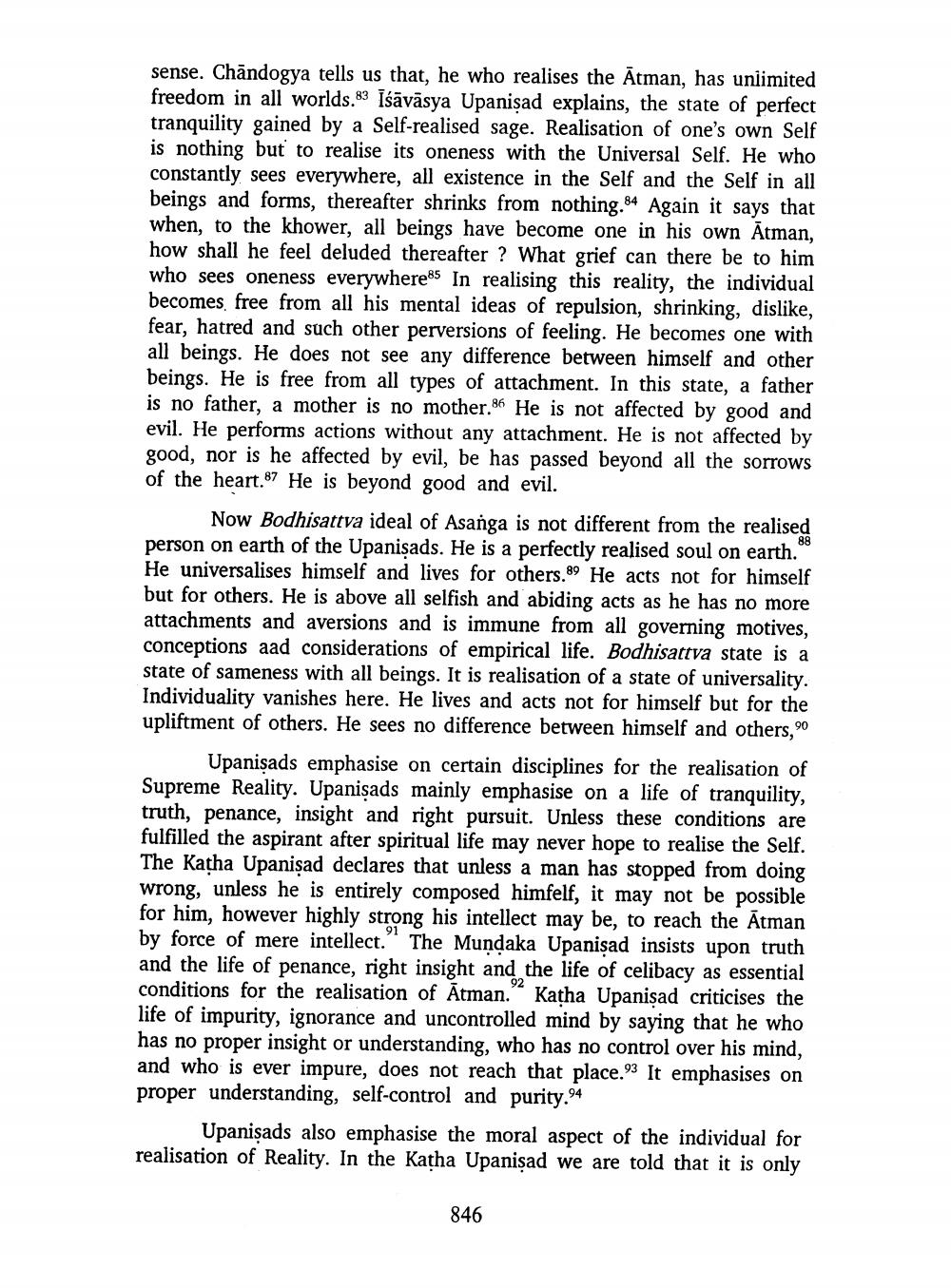________________
MLD. JL.
sense. Chandogya tells us that, he who realises the Atman, has unlimited freedom in all worlds.83 īśāvāsya Upanisad explains, the state of perfect tranquility gained by a Self-realised sage. Realisation of one's own Self is nothing but to realise its oneness with the Universal Self. He who constantly sees everywhere, all existence in the Self and the Self in all beings and forms, thereafter shrinks from nothing.84 Again it says that when, to the khower, all beings have become one in his own Atman, how shall he feel deluded thereafter ? What grief can there be to him who sees oneness everywhere85 In realising this reality, the individual becomes free from all his mental ideas of repulsion, shrinking, dislike, fear, hatred and such other perversions of feeling. He becomes one with all beings. He does not see any difference between himself and other beings. He is free from all types of attachment. In this state, a father is no father, a mother is no mother.86 He is not affected by good and evil. He performs actions without any attachment. He is not affected by good, nor is he affected by evil, be has passed beyond all the sorrows of the heart. 87 He is beyond good and evil.
Now Bodhisattva ideal of Asanga is not different from the realised person on earth of the Upanisads. He is a perfectly realised soul on earth. He universalises himself and lives for others. 89 He acts not for himself but for others. He is above all selfish and abiding acts as he has no more attachments and aversions and is immune from all governing motives, conceptions aad considerations of empirical life. Bodhisattva state is a state of sameness with all beings. It is realisation of a state of universality. Individuality vanishes here. He lives and acts not for himself but for the upliftment of others. He sees no difference between himself and others, 90
Upanisads emphasise on certain disciplines for the realisation of Supreme Reality. Upanisads mainly emphasise on a life of tranquility, truth, penance, insight and right pursuit. Unless these conditions are fulfilled the aspirant after spiritual life may never hope to realise the Self. The Katha Upanişad declares that unless a man has stopped from doing wrong, unless he is entirely composed himfelf, it may not be possible for him, however highly strong his intellect may be, to reach the Ātman by force of mere intellect." The Mundaka Upanişad insists upon truth and the life of penance, right insight and the life of celibacy as essential conditions for the realisation of Ātman." Katha Upanisad criticises the life of impurity, ignorance and uncontrolled mind by saying that he who has no proper insight or understanding, who has no control over his mind, and who is ever impure, does not reach that place. 93 It emphasises on proper understanding, self-control and purity. 94
Upanisads also emphasise the moral aspect of the individual for realisation of Reality. In the Katha Upanişad we are told that it is only
846




